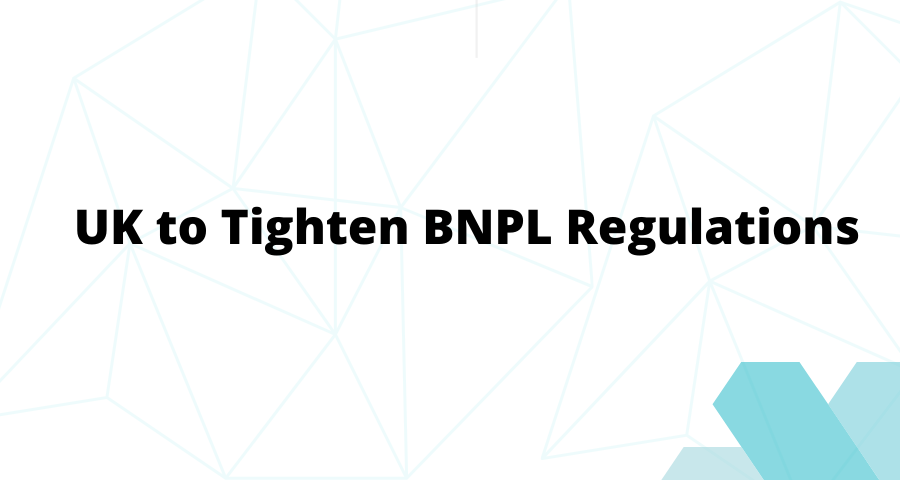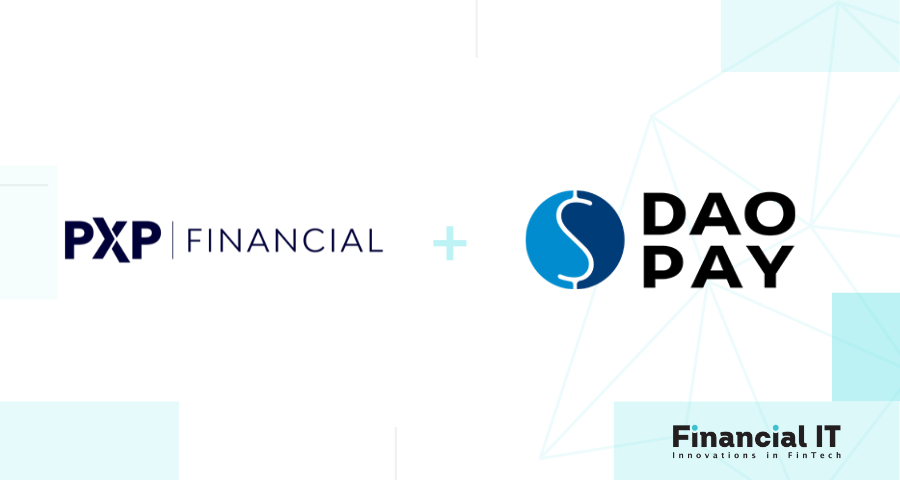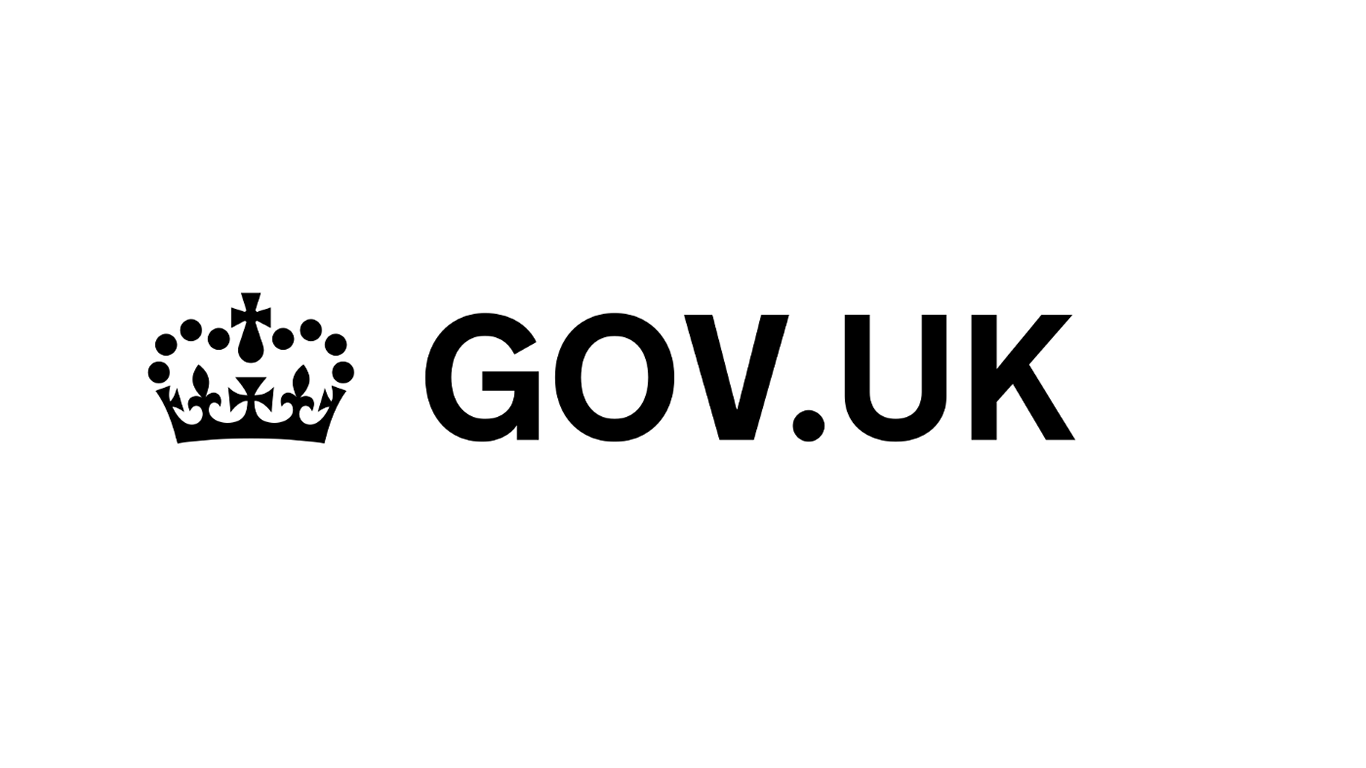Published
- 21.06.2022 -- 08:21 am
Gordon Tveito-Duncan is a Co-Founder of GaiaLens, a FinTech group that provides a data-driven, transparent, and real-time ESG analytics platform to institutional investors. They achieve this by combining cutting-edge technologies and the latest thinking in ESG investing.
Other Videos
- 04:00 am

Government initiatives revealed on the 20th of June will protect millions of customers by tightening Buy-Now Pay-Later credit agreements.
The plan, released on Monday, follows a Treasury consultation on worries that the unregulated BNPL industry is putting customers in debt. As with other loans, companies offering the service will do credit checks to guarantee users can afford the bill.
Buy-now, pay-later credit arrangements allow customers to spread out the expense of a purchase. People don't have the typical complete range of borrower safeguards when taking out this form of loan, which could hurt consumers.
As part of the new consumer protection regulations, misleading promotions and ads will be addressed, and BNPL firms will need FCA approval to operate in the UK. If the requirements are not followed, users can complain to the Financial Ombudsman Service (FOS).
As of November 2021, more than 17 million UK consumers had utilised BNPL's interest-free installment services.
Mike Peplow, CEO at Paynetics, says:
"Regulation is an appropriate development for the BNPL space, bringing the product into the mainstream whilst making sure we have positive outcomes for consumers.
Although BNPL often doesn’t charge an interest rate to the consumer, there are penalties and repercussions for late or non-payment. Simply providing a link to terms and conditions on a website, or providing a page of small print in an App, is not going to be sufficient to convince the regulator that firms have sufficiently communicated the implications of taking on a BNPL product. The new affordability checks coming into play today will protect consumers from spending beyond their means.
Regulation is a vital next step for BNPL and I believe these changes will help the consumer while continuing to champion the development of this innovative sector."
Neil Kadagathur, CEO and Co-Founder of Creditspring, says:
“While the proposed regulations are a welcome step forward, we simply cannot wait that long to regulate the BNPL sector. There is chronic miseducation about BNPL – one in seven UK adults thinks it’s impossible to get into debt using BNPL and a third are unaware that it’s even a form of borrowing and debt. This, combined with the cost of living crisis which we know is pushing more people into borrowing, is unsafe and unsustainable and is guaranteed to damage the long-term financial health of millions of UK borrowers.
In lieu of immediate regulation, the onus falls to lenders to ensure they are lending safely and protecting borrowers by not providing more credit than an individual can safely afford to repay.”
Colin Neil, UK Managing Director of Adyen says:
“Choice and flexibility are vital for shoppers when it comes to paying for goods and services. And our research shows consumers are more likely to shop with retailers that offer a choice of payment options. Buy now, pay later services are important because they offer consumers another form of choice, and according to our research, some even say it helps them better manage their finances. But as with any financial product, there needs to be the right protection in place for consumers and retailers.”
Related News
- 02:00 am

Despite Bitcoin undergoing heightened volatility in recent months, the interest in the flagship cryptocurrency has skyrocketed as the market anticipates the next price action. The searches have also shot up after Bitcoin made slight gains following weeks of sustained correction.
Data acquired by Finbold indicates that as of the week ending June 12, 2022, Google Search's interest in the keyword ‘Bitcoin’ hit a 12-month high with a peak popularity score of 100. Notably, the spike represents a growth of 35% from a score of 74 recorded in the week ending June 27, 2021.
The 100 popularity score also represents a growth of over 156% from 39 registered as of June 5, 2022.
In particular, El Salvador leads in the number of countries showing the highest interest in Bitcoin at 100. The Netherlands ranks second with a score of 27, followed by Nigeria at 26, while Switzerland is third at 22, the same score as Turkey and Austria.
Other countries with significant search volume include Slovenia (22), Singapore (20), Canada (18) and Germany (18).
Drivers for El Salvador’s high-volume searches
The report highlights possible drivers behind El Salvador’s dominance in Bitcoin searches. According to the research report:
"From the Google Search trend, El Salvador stands out, recording significant volume, correlating with the country’s historic declaration of Bitcoin as a legal tender. Since the declaration, the scope of adoption has not been determined, although the government is making moves to increase adoption."
Historically, Bitcoin’s Google searches volume has closely correlated with the asset’s price movement driven by investor curiosity and in some cases controversy.
Currently, the crypto has dropped to historical lows last experienced over one year ago. The drop in valuation usually presents an opportunity for potential investors to buy in the dip with the aim of profiting during the next rally. There remains a general sentiment that Bitcoin will rebound from the latest price drop
Related News
- 09:00 am

PXP Financial, the expert in acquiring and payment processing services and DaoPay, the all-in-one payment service provider, licensed and headquartered in Austria, has announced the next phase in their relationship to deliver payment services throughout Europe.
PXP Financial and DaoPay started working together in 2017 when DaoPay acted as its payment facilitator. Today, the launch of the joint solution in Europe marks a new chapter in what has been an incredibly successful partnership.
Thanks to the strategic partnership, both PXP Financial’s and DaoPay’s customers will benefit from an enhanced card acquiring service at launch, and an alternative payment method (APM) aggregation service throughout Europe later this year. For customers, this means getting all services related to acquiring - from accepting card payments or APMs to receiving money from a single source, as well as access to 100+ payment methods, including mobile and patented phone-based payment solutions. As a result, administrative efforts will be reduced to a minimum, and customers will benefit from greater flexibility and less friction in the payment process.
Kamran Hedjri, CEO of PXP Financial, commented: “DaoPay has vast experience in the payment space and shares our approach to client relationships and putting customers first. We have built a very close relationship which has allowed us to work together to implement a truly robust solution.”
“Payments are a complex field with many players involved. Adding acquiring to the service portfolio means providing a better service without the dependency on third parties and helping customers optimise conversion rates.”
Peter Krapfl, founder and CEO of DaoPay, added: “Like DaoPay, we know PXP maintains a close and trusting relationship with its merchants. Our work together will widen the merchant segments and allow unparalleled possibilities and synergies for our merchants, suppliers and us. DaoPay has worked over two decades in the finance industry and we understand the payment needs of clients in this fast-growing and ever-changing industry. Our joint expertise generates a win-win situation for all involved parties.”
Mr Hedjri concludes: “The future for this partnership is bright. Customers can look forward to migrating to the acquiring solution we have created, and we look forward to working on adding new services to the scope, as well as providing best-in-class customer service based on our strong client relationships.”
Related News
- 09:00 am

AtScale, the leading provider of semantic layer solutions for modern business intelligence and data science teams, today announced that Trumid, a financial technology company and fixed income electronic trading platform, chose AtScale to build out its internal advanced analytics and data science capabilities.
Trumid centralizes performance data from multiple sources into a Google BigQuery data warehouse. AtScale connects BigQuery data to Google Looker reports, ensuring consistently high analytics performance and enabling permissioned non-technical users to interact with a business-oriented view of data. “Headline KPIs” related to aggregated volume and trading on the platform can be reviewed, and internal permissioned users are allowed to interactively explore more granular performance analytics. This approach enables a broader set of users to make data-driven decisions and unlocks the power of Trumid’s modern data and analytics stack.
“Using AtScale in conjunction with Google Looker creates a powerful platform to capture valuable insights from our performance data,” said Mutisya Ndunda, Head of Data Strategy and AI at Trumid. “By delivering a business-oriented view of data to a broader audience, we are able to drive more value from our cloud data and analytics investments.”
Trumid is also exploring the use of AtScale AI-Link to bridge data science programs to broader data and analytics users. This approach allows data scientists to treat the AtScale semantic layer as a feature store, simplifying access to business-vetted features for artificial intelligence (AI) and machine learning (ML) models. Further, model-generated insights can be published back through the semantic layer, enabling permitted business audiences to see broader visibility of predictions.
Related News
- 09:00 am

Sales Layer, the leading PIM (Product Information Management) SaaS platform provider for B2B, has today announced that it has raised $25m in Series B funding, led by PeakSpan Capital with participation from its Series A investors. The funding follows on from the $3.5m raised by Sales Layer’s Series A investors, Swanlaab and Bright Pixel, in 2020.
The Series B will accelerate Sales Layer’s rapid global growth, hiring across all functions while continuing the expansion of international operations. Alongside the evolution of its product roadmap, Sales Layer will continue to reach new customers and increase its presence in the UK and US markets. With 100% growth year-on-year since 2017, Sales Layer will use this investment to solidify its position as the number one PIM solution in the B2B space.
PeakSpan Capital is a growth equity firm based in New York City and San Mateo, CA with a portfolio of high-growth software businesses and over $1.5B in AUM. The investment will support Sales Layer in scaling and evolving within the maturing e-commerce landscape.
Jack Freeman, Partner at PeakSpan Capital comments on the recent investment: “We’ve been tracking the PIM space for several years and know the industry is poised for substantial growth in light of growing product complexity, an explosion of new channels and the continued rise in E-Commerce volume. We identified Sales Layer last year as an emerging player with a clear focus and opportunity to win the B2B PIM space and have since witnessed the business innovate and scale rapidly on a global basis. We’re excited for the future with Sales Layer and see ample opportunities to scale the team, product and customer base further.”
Álvaro Verdoy, Founder & CEO of Sales Layer, explained: “PeakSpan was the strongest VC candidate for Sales Layer. Its team had a very elaborate thesis around e-commerce, supply chain and digital transformation, where PIM plays a very important role. Furthermore, PeakSpan’s experience scaling European businesses in the US will help us to accelerate our expansion.”
Following Sales Layer’s Series A funding round in 2020, which was launched to scale globally to offer international operations and strengthen its infrastructure, previous investors Swanlaab and Bright Pixel Capital have continued to support the company throughout the expansion.
Miguel Bagulho, Investment Director of Bright Pixel Capital added: “We are thrilled to continue to support Sales Layer in this new phase of growth. We know from experience how key product information is and Sales Layer’s solution plays a key role in solving this problem for retailers, brands and B2B players.”
Mark Kavelaars, Founding Partner at Swanlaab also said: “We have been accompanying the Sales Layer team since its initial seed round and four years after we are extremely confident in the team’s capacity to scale its unique offering in the B2B PIM sector. This new phase comes as no surprise since Sales Layer has continuously demonstrated its potential for becoming a worldwide key player in the space”.
After closing out the Series B investment round, Sales Layer is excited to play an even greater and more pivotal role in international digital e-commerce.
Related News

Jussi Karjalainen
Founder and Managing Partner at Valtatech
My last article covered the importance of mapping out and getting to grips with your existing technology and data, and then set out your proposed future ‘to-be’ process see more
- 09:00 am

80 per cent of data breaches in 2021 were caused by user error, according to a new analysis of data from the UK’s Information Commissioner's Office (ICO) carried out by cyber security awareness and data analytics company, CybSafe.
In 2021, UK organisations reported an alarming number of cyber security breaches to the ICO. A total of 2,692 reports were sent to the public body last year, consistent with the reports shown in 2020. The past two years have revealed the highest number of cyber incidents reported since GDPR came into force.
Of breaches reported in the last year, CybSafe has found that 80 per cent of these incidents could be attributed to actions taken by end-users. While it's promising to see this decrease from 90 per cent in 2020, a significant proportion of data breaches are still caused by human error, highlighting the need for organisations to do more to consider the human factor within their security strategy.
CybSafe found that phishing was the primary cause of breaches in 2021, accounting for 29 per cent of all reports. In 2020, nearly 38 per cent of breach reports were made to the ICO as a result of successful phishing attacks. Although phishing attacks have declined in the last year, ransomware continues to be a growing risk to every sector.
The steep rise in ransomware attacks, with 692 incidents reported in 2021 alone, became the second most common cause of cyber breaches last year. Causing 20 per cent of all cyber incidents, ransomware poses a significant threat to the safety and privacy of various organisations.
Oz Alashe, CEO of CybSafe, said: “As identified in the analysis, human error is a major contributing factor enabling attackers to access sensitive information and encrypted channels within organisations. Cybercriminals will often identify the route of least resistance and exploit the vulnerabilities of employees. Therefore, it is crucial that we shift our focus onto user security behaviours within our businesses.”
“To combat the threat of cyber security breaches, we need to get rid of box-ticking awareness exercises and address the human aspect of cyber security to achieve genuine behavioural change. An empathetic and understanding approach is likely to have the desired outcome of improving employees’ security awareness and their behaviour, without negative consequences.”
“Addressing this issue is key to reducing successful attacks against organisations. People have an important role to play in helping to protect the companies they work for, and human cyber-risk can almost always be significantly reduced by encouraging changes in staff cyber-awareness, behaviour, and culture,” Alashe concluded.
Related News
- 05:00 am

Millions of people will be protected through strengthening regulation of interest-free Buy-Now Pay-Later credit agreements, under plans announced by the government today (20 June).
Buy-Now Pay-Later credit agreements can be a helpful way to manage your finances, allowing people to spread the full cost of a purchase over time. However, people do not currently have the usual full range of borrower protections when taking out this type of loan and they are rapidly increasing in popularity, resulting in a potential risk of harm to consumers.
Under plans set out by the government today, it confirmed that lenders will be required to carry out affordability checks, ensuring loans are affordable for consumers and will amend financial promotion rules to ensure Buy-Now Pay-Later advertisements are fair, clear, and not misleading. Lenders offering the product will need to be approved by the Financial Conduct Authority (FCA), and borrowers will also be able to make a complaint to the Financial Ombudsman Service (FOS).
Economic Secretary to the Treasury, John Glen said:
“Buy-Now Pay-Later can be a helpful way to manage your finances but we need to ensure that people can embrace new products and services with the appropriate protections in place.
“By holding Buy-Now Pay-Later to the high standards we expect of other loans and forms of credit, we are protecting consumers and fostering the safe growth of this innovative market in the UK.”
Today’s consultation response sets out the government’s proposals for the regulation of the sector. Given its complexity, the government will publish a consultation on draft legislation toward the end of this year. Following this, the government aims to lay secondary legislation by mid-2023, after which the FCA will consult on its rules for the sector.
The government has also confirmed that other forms of short-term interest-free credit, such as those used to pay for dental work or larger items like furniture, will be required to comply with the same rules announced today, given the risks posed are similar and consumers should receive consistent protections from similar products. These rules will apply to businesses that partner with a third-party lender to provide credit, and the government is asking for further stakeholder feedback to confirm whether they should also apply to online merchants who directly offer credit for the purchase of their own products.
Today’s announcement forms part of the government’s plan to grow the economy to tackle the cost of living. The Chancellor has provided £37 billion of support to help, including providing the eight million most vulnerable British families with at least £1,200 of direct payments this year – and giving every household right across the UK £400 to help with their energy bills.
Related News
- 08:00 am

From this month, customers of The Cumberland will find it easier to monitor their carbon spending with a tool to measure and reduce their carbon footprints.
The building society’s 70,000 current account customers are being encouraged to download the Cogo app and link their Cumberland account to give them a clear picture of how their spending affects the environment – covering financial transactions, investments, and day-to-day purchases. The app will also give customers suggestions of how to reduce or offset their carbon footprint based on their personalised spending.
Cogo has a powerful algorithm that can calculate the carbon emissions of all transactions on an account. To calculate a person or household’s carbon footprint, Cogo first analyses the banking data and matches every transaction to a specific industry (i.e. fashion, grocery, insurance). It then estimates the carbon footprint of that transaction using secure open banking data. For example, £1 spent at a UK fashion retailer creates on average 1kg CO2e. The app also factors in the type of products sold by each company, for example, which energy suppliers use 100% renewable electricity.
This partnership with Cogo, which begins the sustainability journey for the building society, focuses on informing and educating customers to encourage positive collective action. As the first building society in the UK to promote carbon tracking, The Cumberland is forging the path for others to embrace sustainability and help customers consider how their finances are affecting the planet.
Based on Cogo’s previous experience, each customer that engages and takes action could save approximately 130kg of carbon emissions a year; the more action they adopt the greater their potential savings. If all of Cumberland's customers engage with this carbon tracking tool, the initiative has the potential to save over 9 million kgs CO2e per year - that is equivalent to flying 26.6 million miles, which is the same as over 1000 circumnavigations of the globe.
Emma Kisby, UK and Europe CEO at Cogo, said:
“At Cogo, we are committed to getting people to measure, reduce and offset their impact on the climate. In order to achieve impact at scale, we need to work with like-minded organisations, such as this first building society partnership with The Cumberland.
“Through the use of our powerful data-driven insights, The Cumberland’s thousands of customers will now be able to understand their own carbon footprint and learn more about how their everyday choices impact the planet.
“We’re excited to be entering into this first-of-its-kind partnership with The Cumberland, leading the way in championing a sustainable approach to spending.
Nigel Taylor, Head of Marketing and Brand, at The Cumberland, said:“
“At The Cumberland we are aware of how instrumental sustainability is to our strategy and goals. We’re excited to partner with Cogo as it aligns perfectly with our core purpose, helping people understand how they can positively impact the environment and be kinder to the planet.
“Through our partnership with Cogo, we aim to help educate our colleagues and customers so they can understand their carbon footprint. We are also keen to learn ourselves as we continue to scale up our own journey to reduce carbon emissions. Cogo provides us with incredibly useful insights and data to inform the decisions and actions we need to take to build a sustainable future for all.”









